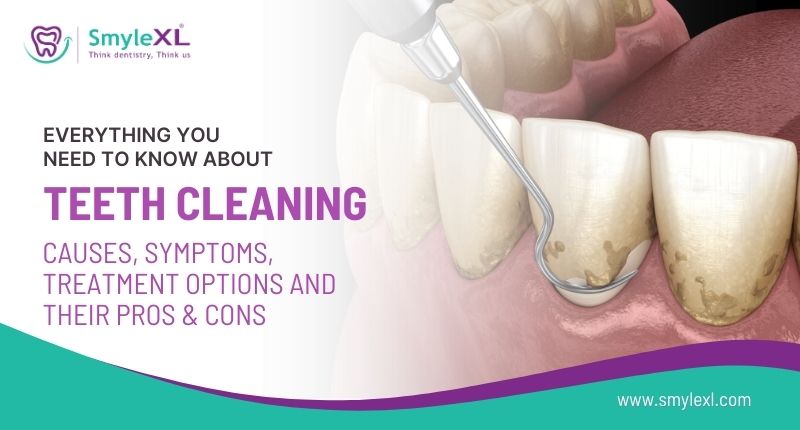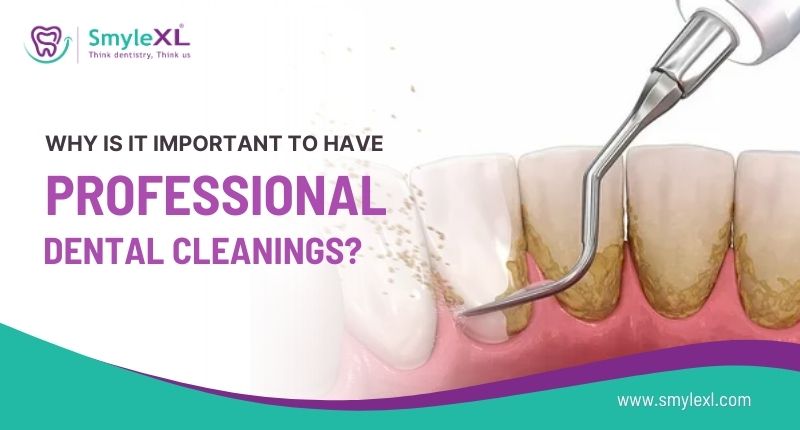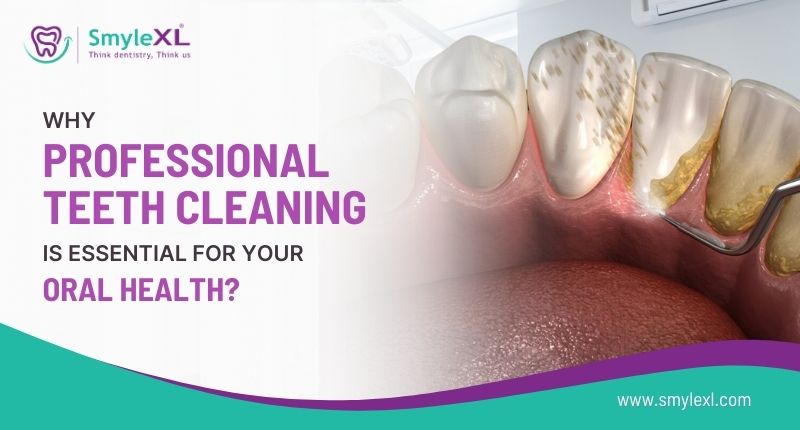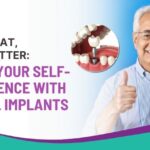Professional teeth cleaning is an important part of maintaining good oral health. It’s not just about having cleaned teeth; it’s also about preventing serious dental issues like gum disease, cavities, and even tooth loss.
In this blog, we’ll explore teeth cleaning, why it’s so important, the causes of dental plaque and tartar buildup, common symptoms, treatment options, and the pros and cons of each treatment to help you make an informed decision.
What is Teeth Cleaning?
Teeth cleaning is a dental procedure performed to remove plaque, tartar, and stains from teeth. While regular brushing and flossing helps maintain oral hygiene, professional cleaning is necessary to remove buildup that can’t be removed with at-home care alone. A dentist typically cleans teeth, using specialized tools to clean the surfaces of teeth, under gums, and between teeth.
Causes of Plaque and Tartar Buildup
The main cause of plaque buildup is the accumulation of food particles, bacteria, and saliva in your mouth. When you eat, especially foods high in sugars and starches, bacteria in your mouth feed on these food particles and produce acids that contribute to plaque formation.
Plaque is a sticky, colorless film that forms on your teeth, and over time, it can harden into tartar if not removed through regular brushing and flossing. Tartar is more stubborn and can only be removed by a professional dental cleaning.
Other factors that can contribute to plaque and tartar buildup include:
1. Poor oral hygiene habits (infrequent brushing or improper brushing techniques)
2. Diet high in sugary or starchy foods
3. Smoking or using tobacco products
4. Dry mouth or insufficient saliva production
5. Genetics (some people may be more prone to plaque buildup)
Common Symptoms That You Need Teeth Cleaning
While you may not always notice plaque buildup right away, there are several signs that you may need a professional teeth cleaning treatment:
Bad breath (halitosis): Persistent bad breath can be a sign that bacteria are building up in your mouth due to plaque and tartar.
Gum bleeding: If your gums bleed when you brush or floss, it may indicate gingivitis (early gum disease), which is caused by plaque buildup.
Swollen or tender gums: Healthy gums should be pink and firm. If they are swollen, red, or sensitive, it’s a sign that you may need professional cleaning.
Yellow or brown stains on your teeth: If you notice discoloration on your teeth that doesn’t go away with regular brushing, it could be tartar buildup.
Receding gums or loose teeth: Advanced gum disease, caused by untreated plaque and tartar, can lead to gum recession or loose teeth, which may require more intensive dental treatments.
Treatment Options for Teeth Cleaning
There are different types of professional teeth cleaning treatments, depending on your oral health needs and the severity of plaque or tartar buildup. Let’s take a closer look at the most common options.
1. Basic Teeth Cleaning (Prophylaxis)
This is the most common type of teeth cleaning. It’s typically performed every six months as part of routine dental checkups for healthy patients. The dentist uses an ultrasonic scaler or manual tools during this treatment to remove plaque and tartar from the tooth surfaces above the gum line.
2. Deep Cleaning (Scaling and Root Planing)
For patients with gum disease (periodontitis) or heavy tartar buildup, a more thorough cleaning is necessary. Scaling and root planing involves cleaning beneath the gum line, where plaque and tartar can accumulate. Scaling removes tartar, while root planing smooths the roots of your teeth to promote gum reattachment and healing.
3. Polishing and Stain Removal
After scaling, your dentist may polish your teeth to remove surface stains. This can be done using a special paste and a rotating brush. If you have discoloration from foods, coffee, or tobacco, this can help improve the appearance of your teeth.
4. Laser Teeth Cleaning
Some advanced dental practices offer laser teeth cleaning, which uses a special laser to remove tartar and plaque from the teeth. This treatment is typically used for deep cleanings in patients with more severe gum disease.
Pros and Cons of Teeth Cleaning Treatments
Pros
1. Prevents gum disease and tooth decay.
2. Improves breath and reduces plaque buildup.
3. Helps maintain a healthy, attractive smile.
4. Reduces the risk of serious dental issues like tooth loss and infections.
Cons
1. Professional cleaning can sometimes cause mild discomfort or sensitivity, especially for those with gum disease.
2. Some treatments may be costly, particularly if they are more intensive (like scaling and root planing).
3. It is not a substitute for regular at-home care. Tooth cleaning is most effective when combined with good brushing and flossing habits.
Teeth cleaning is an important part of maintaining your overall oral health. Whether routine or more intensive deep cleaning, regular professional treatments can help prevent serious dental issues such as gum disease, cavities, and tooth loss.
For more information about teeth cleaning treatment, book an appointment with our expert at SmyleXL Dental Clinic.










